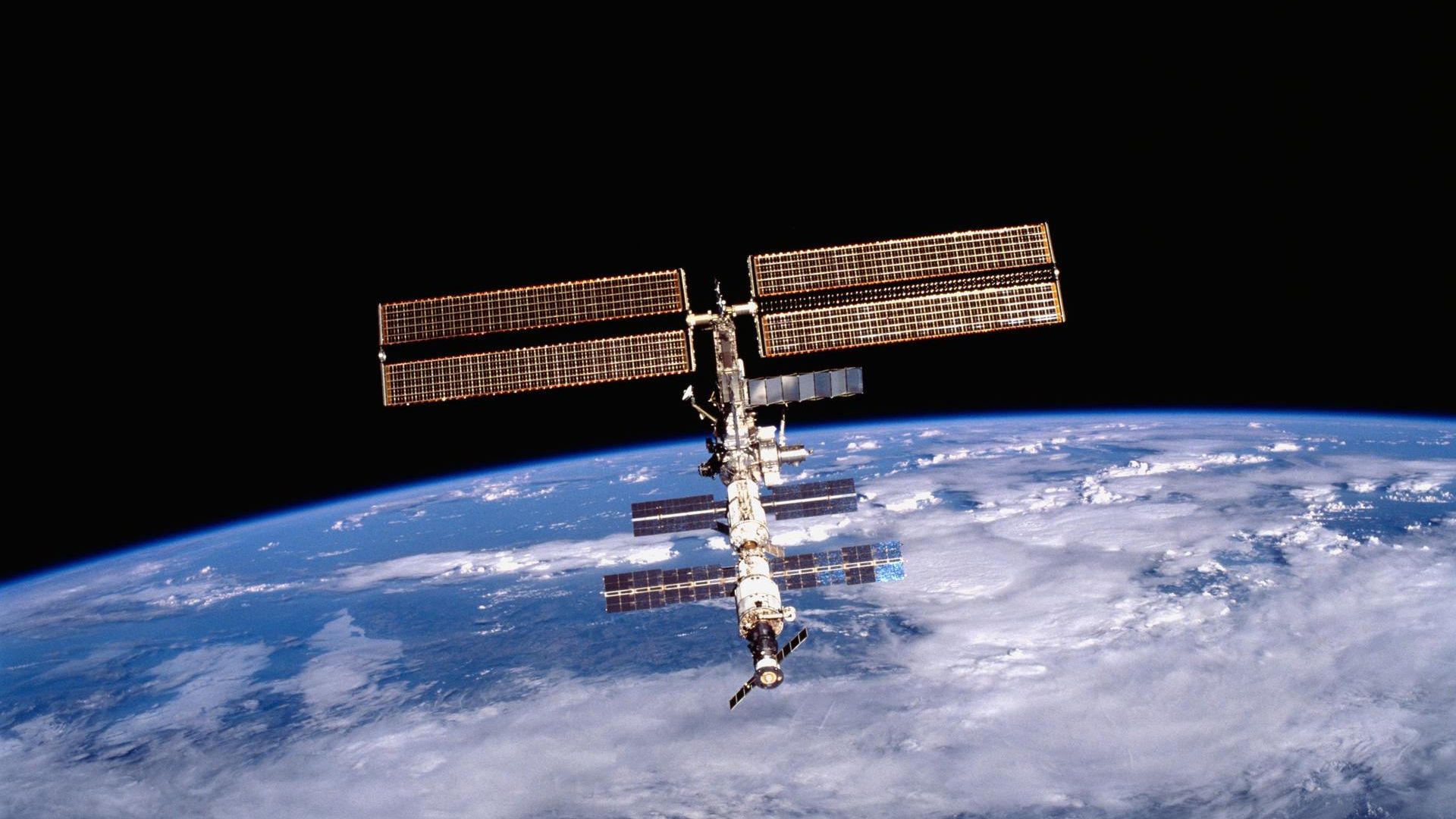The debate over the space station's future
Add Axios as your preferred source to
see more of our stories on Google.

An image International Space Station taken from the Space Shuttle Discovery during a 2001 mission.
President Trump's budget would end direct U.S. financial support for the International Space Station in 2025.
Why it matters: Even though the president's budget, as described by the AP, was "obsolete even before it was made public," the proposal will fuel an important debate about the future of public and private sector-funded space science.
The U.S. has spent more than $80 billion to support the ISS, a high-profile model of international and public-private sector cooperation. The White House has said it wants to end U.S. spending (roughly $4 billion a year) as soon as possible and transfer that burden to the private sector.
To ease America’s exit from direct support of the space station, the Trump administration proposes “a new $150 million program [that] would begin support for commercial partners to encourage development of capabilities that the private sector and NASA can use.” In short, their plan is to try to entice commercial space companies in the United States to take over the federal government's role in the ISS.
"No one wants a repeat of the ‘Shuttle gap’ where we find ourselves today dependent on Russian for our astronauts to travel to and from space.”— Jeff Manber, CEO of NanoRacks, the first company to own its own hardware on the space station
The debate: “The conversation we do need to have is [about] the space station’s long-term future and the potential for our thriving commercial sector to embrace, run, and eventually pay for its upkeep," said Phil Larson, who served as President Obama’s lead space expert at the Office of Science and Technology Policy and is now a University of Colorado professor.
Larson, who has also worked for Elon Musk’s SpaceX team, notes that the ISS has worked well as a model for both international and public-private sector cooperation at a time when such collaborations are difficult to manage. “Rather than having a stark cutoff date without a plan for the future, any ISS transition should include conversations with our international and private-sector partners. The space science work being done on the ISS is critical for any deep-space exploration plans,” he says.
Bottom line: NASA may need to stay involved in the ISS beyond 2025 in order to leverage private investment. “It’s not just the life of the space station that is vital, but the entire support structure," Manber said.
